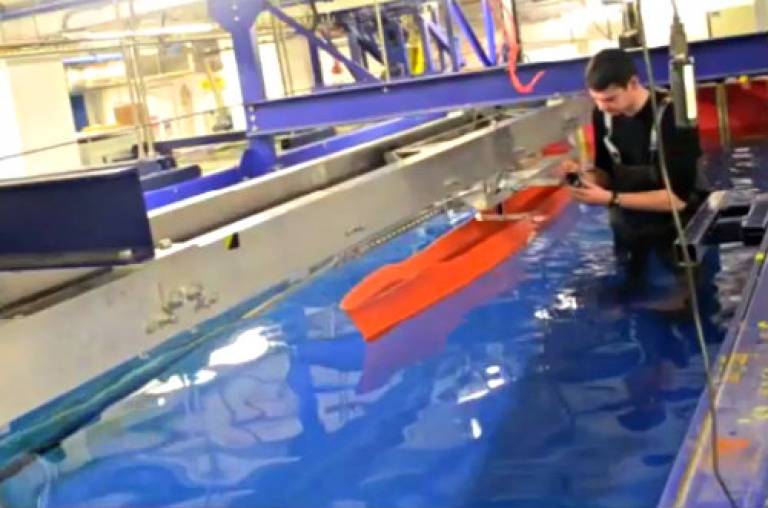Making and using video for teaching: Dr Ema Muk-Pavic’s tips & advice
Dr Ema Muk-Pavic (UCL Mechanical Engineering) shares how using videos as a form of assessment has proved beneficial, time-saving and useful for both students and staff.

12 August 2015
This interview is part of the ‘Lecturers on Video’ research project for Digital Education and Digital Media. The project, conducted in 2015, investigated how and why lecturers use video and what their future video requirements are for successful student teaching. A questionnaire was developed and an education producer, Dr Mike Howarth was commissioned to produce the content for the UCL Lecturers on Video research project.
Use different kinds of videos
“Because depending on their career path they will be asked to do different types of presentations; it might be as a news article or a conference paper so we shouldn't focus on just the ‘research’ type of presentations of any profession.
Useful for assessment
We didn't plan on that, but it saved us a lot of time. Instead of reading reports, we had to spend three minutes to five minutes in reviewing their video for the assessment.
Also it allows for easier peer assessment because they can get access [to the assessment videos] online wherever they are, so they can then get more of the qualitative feedback from their colleagues.
So in essence I think it's a way of communication and providing feedback between all parties.
Be ready for compromises and surprises
Preparation is quite significant effort and it's not always as straightforward as it might seem. Student expectations need to be controlled: you need to be really clear what your expectations are and how that will affect their marks.
Be ready for surprises also because some of the students’ work was well above our expectations. They really do put in a lot of effort and I think that is something that we didn't anticipate.
Videos are reusable in multiple contexts
They are really useful for the next generation because at the beginning we actually show them some examples of the previous year's work. Then they already start to come up with their own ideas, but also the idea of what the message should be, what the marketing materials should be and how they should approach the problem.
We notice actually that every year the quality of the work is higher. Their ideas [are also for] their own personal use - to figure out actually this might help them with career progression. They will send it to future employers as marketing material as well so I think there is benefit in on all sides."
 Close
Close

